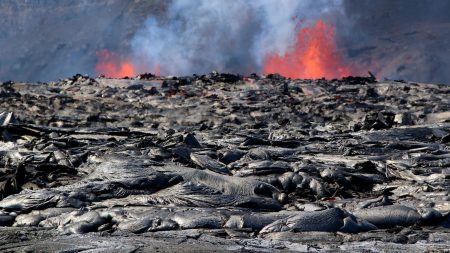Ukraine Proposes Rare Earth Elements Deal with the U.S. for Military Aid
Ukraine has proposed a unique deal to U.S. President Donald Trump, offering to collaborate on developing its mineral industry, which is rich in rare earth elements (REEs), in exchange for continued American military aid. This proposal, initially floated by Ukrainian President Volodymyr Zelenskyy last fall, aims to strengthen Ukraine’s position in future negotiations with Russia while addressing the global demand for critical minerals. The offer comes at a time when Ukraine is heavily reliant on U.S. military support to defend itself against Russia’s ongoing invasion, which began in February 2022. Andrii Yermak, Zelenskyy’s chief of staff, emphasized Ukraine’s vast mineral potential, stating, “We really have this big potential in the territory which we control. We are interested to work, to develop, with our partners, first of all, with the United States.”
The Importance of Rare Earth Elements in the Global Economy
Rare earth elements are a group of 17 minerals critical to the production of advanced technologies, including smartphones, hard drives, electric vehicles, and hybrid cars. While Trump has not specified which elements he is interested in, Ukraine’s mineral reserves include lithium, titanium, uranium, and many others. These minerals are not only vital for consumer goods but also for defense and aerospace industries, making them a strategic priority for global powers. Currently, China dominates the rare earth market, producing over 80% of the world’s supply. Both the U.S. and Europe have been actively seeking to reduce their dependence on China, making Ukraine’s offer particularly timely and attractive.
The Current State of Ukraine’s Mineral Industry
Despite its significant potential, Ukraine’s rare earth industry remains largely untapped due to a combination of factors, including the ongoing war with Russia and restrictive state policies governing the mineral sector. Geological data on Ukraine’s mineral reserves is sparse, with many areas lacking detailed studies to guide mining efforts. Businessmen and analysts indicate that the true potential of Ukraine’s mineral resources is not fully understood due to insufficient research. However, the available data paints a promising picture. Ukraine is believed to have some of Europe’s largest reserves of titanium, a key component in aerospace, medical, and automotive industries, as well as significant lithium deposits, which are essential for battery production.
The Economic and Strategic Benefits of a U.S.-Ukraine Deal
A deal between the U.S. and Ukraine could have significant economic and strategic benefits for both countries. For Ukraine, developing its mineral industry with U.S. partnership could provide a much-needed economic boost and diversify its export portfolio. In 2021, the mineral industry accounted for 6.1% of Ukraine’s GDP and 30% of its exports. However, an estimated 40% of Ukraine’s metallic mineral resources are currently inaccessible due to Russian occupation. By developing the remaining resources, Ukraine could strengthen its economy while reducing the risk of losing more territory to Russian advances. For the U.S., such a deal could reduce its reliance on China for rare earth elements, enhancing its supply chain security and strengthening its geopolitical position.
Europe’s Role in Ukraine’s Mineral Development
The European Union has also identified Ukraine as a potential supplier of critical raw materials, with the European Commission highlighting Ukraine’s potential to supply more than 20 critical minerals. If Ukraine were to join the EU, it could significantly strengthen the European economy and reduce Europe’s dependence on imports from outside the bloc. However, developing Ukraine’s mineral industry would require significant investment, including geological surveys, legislative reforms, and infrastructure development. While U.S. companies have expressed interest in collaborating with Ukraine, any formal agreement would need to address issues such as security guarantees for investors and financing arrangements.
The Challenges of Moving Forward
While the potential benefits of a U.S.-Ukraine rare earth deal are significant, there are several challenges that must be addressed before such an agreement can be realized. One major hurdle is the ongoing conflict with Russia, which not only limits access to mineral resources but also creates uncertainty for investors. Even in the event of a ceasefire, companies may require robust security guarantees before committing to projects in Ukraine. Additionally, striking a formal deal would require legislative support, detailed geological surveys, and lengthy negotiations over specific terms. Despite these challenges, both Ukraine and the U.S. have a clear interest in moving forward, with Ukraine seeking to secure its military and economic future and the U.S. aiming to reduce its dependence on China for critical minerals. The success of this initiative will likely hinge on the outcomes of meetings between U.S. and Ukrainian officials, including potential discussions between Trump and Zelenskyy. As the global competition for rare earth elements intensifies, Ukraine’s offer presents a unique opportunity for both countries to strengthen their partnership and secure their strategic interests.















